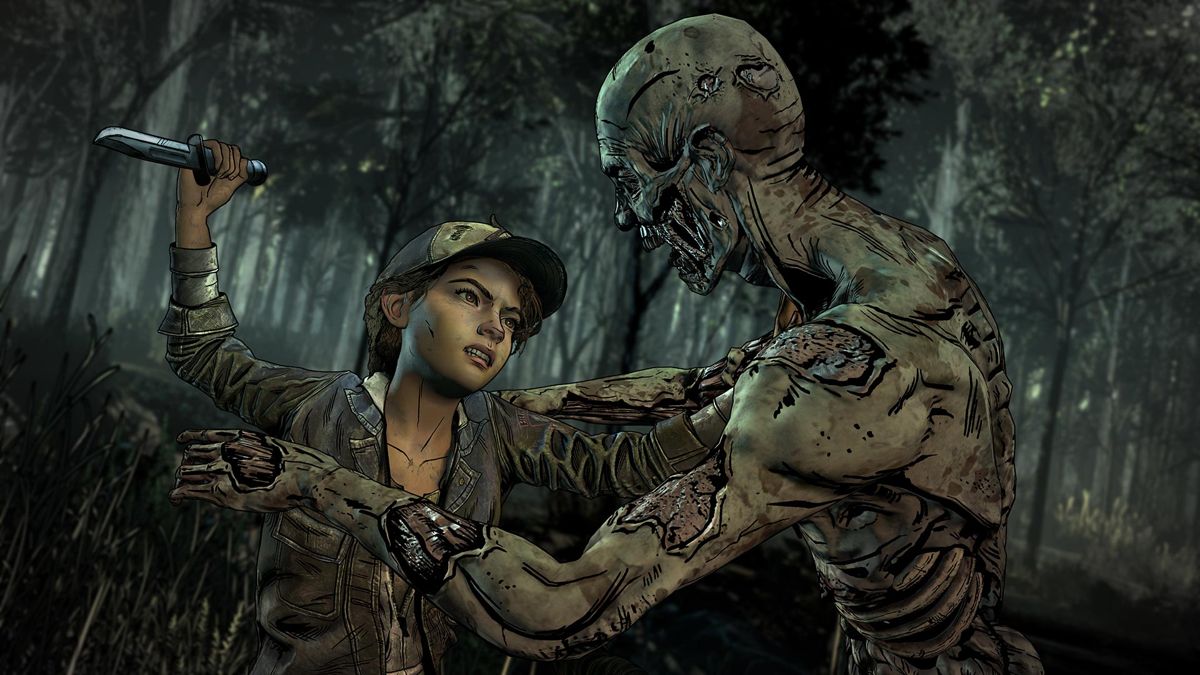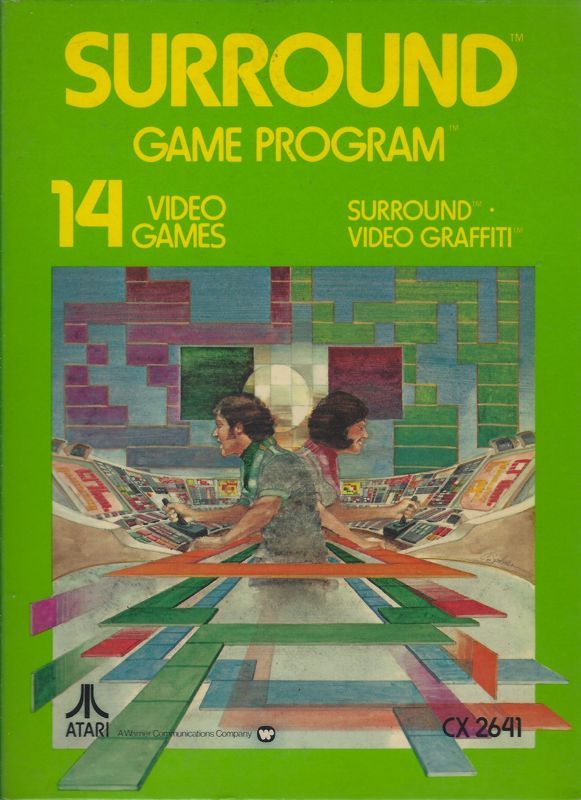
A good friend of mine was reading A Storm of Swords – for those of you who aren’t aware, it’s the third book in the ‘A Song of Ice and Fire’ series by George RR Martin, which the TV series ‘Game of Thrones’ is based on – and, upon reading the infamous Red Wedding sequence, launched the book across the room in disgust. These characters she’d become so attached to, so invested in – that were, for the most part, decent people in a horrifically brutal world, were gone. Casually, violently, bloodily dispatched.
The Walking Dead in its many forms – the original comics, the TV shows and the games – takes a similar approach. It gives you people to root for, people you identify with, people you end up caring about – and then snatches them away in moments of extreme violence, leaving you shellshocked, angry and hurt.
There’s a Red Wedding moment in the final season, a moment which – if I’d been reading a book – would have seen said book launched across my room in the same manner that my friend threw her George RR Martin novel all those years ago. It left me feeling numb. Hurt. Annoyed. Like there was no point even going on.
Isn’t it astonishing that a game made me feel that way? Got me so invested in the lives of its characters that I had to step away, calm down and come back later to finish the story? It feels like a towering achievement to me, even though I was incredibly annoyed by the scene. Telltale really knew what they were doing.

So yes, The Walking Dead: The Final Season plays the same games with your emotions as the other titles in the series, giving you difficult moral choices and making you face the often devastating consequences of your actions. It’s a remarkable game in so many ways – and the series as a whole doesn’t get the credit it deserves for its astonishing stories and techniques (though the first game quite rightly won numerous awards, the rest of the series didn’t reach the same level of acclaim or success – which is a real shame).
It’s not without faults; there’s an attempt to take it out of the heavily-scripted, quick time event dominated style of the previous games with more direct, third person control over your character in many scenes – but it’s awkward, somewhat unresponsive and brings a veneer of ludonarrative dissonance to the game; Clementine is so capable (and we know this, having spent many years in her company by this point), yet moves incredibly sluggishly and is barely able to dodge one walker when attacking another during these scenes. Again and again, you’re likely to fall prey to the instant deaths in these scenes through no fault of your own – the game’s camera and its weird reluctance to give you a great deal of capability in these sections really do bring it down. There’s also collectible objects to find strewn throughout many environments; once you know that these are there to decorate your room with, it doesn’t take a rocket scientist to work out that you’ll be heading back to your room at some point with said objects, spoiling the drama somewhat. It also just doesn’t feel particularly fitting to have collectibles to find in The Walking Dead; it’s just a very odd touch.
I found it strange too that, after spending an entire game building up Javi, his family and the community of Richmond, they’re absolutely nowhere to be seen and only mentioned incredibly briefly. It makes the events of the third game feel almost entirely redundant aside from Clementine – and AJ’s – story.

There’s also a very ‘Peter Jackson’s Return of the King’ feel to the final act, which drags out the proceedings far too much, with several places that the game could end perfectly, but doesn’t. Yes, it ties up loose ends and does at least right a few of the narrative missteps taken in the final episode (which I won’t spoil, but having a flashback scene after a hugely pivotal moment occurs will likely feel as pointless to you as it did to me at that stage), but it does feel like padding – which is unusual for what’s usually such a tightly scripted series with a lot of excellent momentum: put simply, there are too many endings. There are several sections in The Final Season that feel unnecessarily dragged out, unfortunately, partly because of the more open adventure game feel that Telltale and Skybound tried to bring to the table. The problem is, this then opens up unfavourable comparisons with other third person, more action-oriented games – and The Walking Dead really can’t compete with those experiences. Nor should it be trying to do so.
What The Walking Dead games always did brilliantly – and what it still does well even in the flawed final season – is give you choice, the sense of a narrative evolving according to the choices you make and characters that you really care about. Thankfully, all of those are present, correct and as strong as ever, if not more so.

Coming of age is a strong theme in The Final Season, as is teaching and learning – the importance of passing on knowledge carefully. Clementine, in charge of young AJ, is constantly reminded that her young companion will take on board things that she says and does – and will act, as well as react, based on what he’s seen. It’s a really powerful way of confronting you with almost immediate feedback on your narrative choices. There’s a somewhat Lord of the Flies-esque feel to much of the proceedings too, which I’ll say no more about for fear of spoiling the narrative.
The Final Season’s episodes all feel like episodes of a TV show; the series has always done this well, with a ‘Previously on The Walking Dead’ recap, but here there’s even a title sequence and theme song after a cold open. It’s a great technique. Recaps are done more in the style of the comic book with voiceover and illustrations, whereas the other games used animated in-engine cutscenes – it’s a stylistic choice that didn’t quite have the same effect as the one used in previous seasons, but your mileage may vary.
During the first game, I wasn’t able to make Clementine shoot anything more than inanimate targets and couldn’t ask her to kill, no matter the circumstances (despite the choice being available at least once). By the climax of The Final Season’s last episode, I’d too often been confronted by the fallout from showing mercy and empathy throughout the various games in the series – and I made sure to take the lethal option whenever it presented itself at that stage. I’d grown from a meek young character into one who’d kill without hesitation, to ensure that the consequences couldn’t come back and bite me in the arse further down the line. It was amazing to sit and think of how my approach had evolved throughout the series, just as it would have to – in theory – were a similar situation to develop in the real world.

Speaking of choice and consequence, one of the major threats in The Final Season comes from a decision made very early on in the first series – and it has absolutely devastating repercussions. It’s a masterstroke to bring your actions front and centre, driving home what a strong narrative throughline the series has. Even if it wasn’t planned to the smallest detail, it certainly feels as if it was – which is the same for the series as a whole. Though the branching narrative concept may be illusory for the most part, it always feels as if the story is playing out because of what you’ve done – or failed to do. The Walking Dead: The Final Season may not be a perfect game in isolation, but from a narrative point of view it does everything it needed to in order to give us closure and bring us to the end of this particular journey. From start to finish, it was an emotionally draining, but unforgettable trip. As a whole, the series is an absolute masterpiece – and I’m very glad that I went on this ride, with its huge cast of flawed, but interesting characters. I’m just glad I was able to stop myself from throwing my controller across the room.
Enjoyed what you’ve read? Want to support my blog? There’s no pressure of course, but every penny helps to keep this site running, as I earn no income from my writing here (though I may earn small fees from affiliate links posted on my pages).
However, I’d be truly grateful for any support that you could offer – and it’s easy to do so at either of these links: Ko-Fi.com/geekmid or PayPal.
Any donations are truly appreciated – and I also appreciate you taking the time to read my articles. Thank you so much!

Help support me here!
All donations are gratefully received and will help me keep the lights on here – as well as help to keep my writing dream alive! Please be aware though: there’s no pressure. I just hope you’ve enjoyed reading my article!
£1.00






Leave a reply to AK Cancel reply